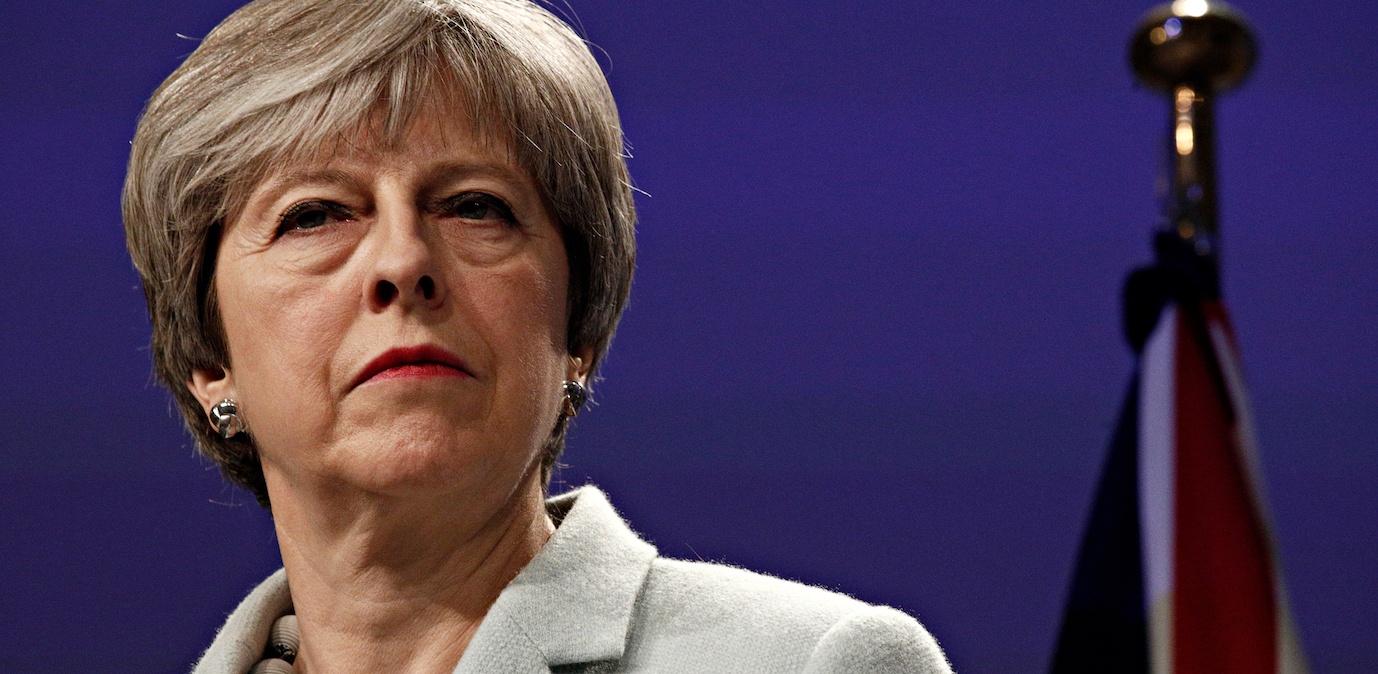Rebels with a cause can't beat Mrs May in the game of chicken
by Inline Policy on 28 Jun 2018
While many see Theresa May’s regular battles with both wings of her party as the government lurching from crisis to crisis, it is starting to look more like a deliberate strategy. What does this tell us about Downing Street’s strategy for the negotiations with the EU?
Last week’s votes in the House of Commons on the EU Withdrawal Bill saw yet another “rebellion” against the Prime Minister fizzle out, as Dominic Grieve voted against his own amendment to give Parliament a say on the final settlement between the UK and EU. This was the latest battle between Downing Street and both Brexiteers and Remainers (“soft Brexiters” might be a more accurate description) in the Conservative Party. It seems that each side is taking turns at seeking to dictate the government’s negotiating position in one way or another and issuing threats against Mrs May’s premiership. Politicians and the media turn each of these episodes into a new "make or break" crisis that suggest the government is about to fall or the Prime Minister overthrown. But each and every rebellion has evaporated, and Theresa May remains in charge.
There is no doubt that a minority government propped up by the mercurial DUP makes for unstable leadership, but could it be that the existential nature of each crisis actually suits Number 10? In reality the Prime Minister knows that, whoever the rebels are this week, they cannot go through with their threats because they fear that removing her would lead to a worse outcome for them, whichever side they are on.
Is not making decisions all part of the strategy?
Some commentators have suggested that the number of strategic decisions that have been repeatedly put off show that Mrs May has difficulty making tough choices, but it is plausible that this is part of the same strategy. Delaying decisions until they are critical helps ramp-up disagreements into crises and every crisis is potentially existential for a PM without a majority.
So, the "bloody difficult woman" stands between the warring sides of her party, letting them tear strips off each other, before pushing through her decision as a fait accompli because the only alternative to accepting her decision is to drive the government off the cliff.
Arguably the Prime Minister’s hand is further strengthened by the fact that the repeated rumours and threats of Cabinet resignations are unlikely to change the calculation. While a number of Remainer ministers have left the government without any discernible impact on the Theresa May’s authority, the big beasts of the Brexiteers merely threaten resignation but clearly have no intention of going anywhere for fear that their preferred version of Brexit may not be delivered. Backbench MPs and potential leadership competitors may issue threats against the Mrs May, but no one really wants to be the person who brings down the Prime Minister at such a critical time for the country.
But don’t forget the DUP
The logic of “careful what you wish for” is also true for the Democratic Unionist Party, who would not like to see the Conservative Government replaced with a Labour-led administration. However, for the DUP the issues around the Irish border are so fundamental to their political and social positions that they could countenance letting Theresa May’s government fall if the ultimate Brexit settlement crosses enough of their red lines. The DUP Leader Arlene Foster has shown herself more than adept at holding her position until Theresa May gives her what she wants on two significant occasions – the original deal to support the minority government in exchange for £1bn of additional funding for Northern Ireland and in December 2017 when unhappy about the wording on the Irish border negotiated by the government and the EU. it certainly seems that Theresa May knows better than to give the DUP ultimatums.
Is the same strategy being used in negotiations with the EU?
Away from the political backbiting of Westminster, what does this tell us about the UK’s strategy in the Brexit negotiations with the EU? At first glance the strategy appears similar – push-back decisions for as long as possible, allow disagreements to ramp-up into crises, sometimes show Mrs May’s born-again Brexiteer credentials, sometimes hold out a friendly hand of compromise.
The question has to be whether the EU27 attach sufficient importance to having a workable outcome to the Brexit trade negotiations? A no-deal scenario would be highly disruptive, but would it be an existential threat to the EU in the way that it would almost certainly be to May's government? Furthermore, could the increasing Euroscepticism of electorates across Europe be a more direct existential threat when a Brexit deal needs to be concluded just two months before European Parliamentary elections?
Ultimately, if the Brexit negotiations are reduced to a game of chicken, can either side really win?
Topics: European Politics, UK politics, International politics, UK business, Brexit, David Abrahams






Comments